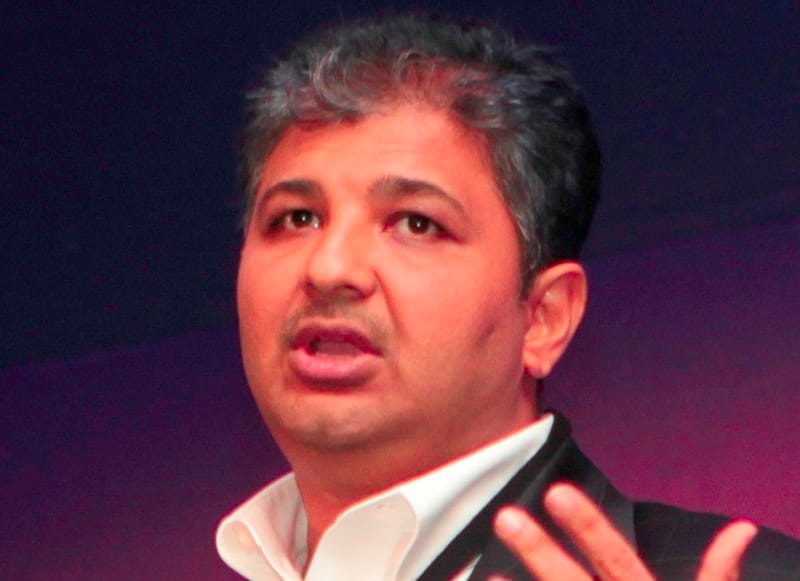Prakash Sangam: China’s Huawei Clones Are Greater Threat to National Security than Huawei
The Federal Communications Commission (FCC) will vote on Friday to virtually block Huawei’s access to the U.S. market, but this rare bipartisan action only protects one element of America’s digital infrastructure. In reality, the likeliest and most susceptible security vulnerabilities aren’t well u

The Federal Communications Commission (FCC) will vote on Friday to virtually block Huawei’s access to the U.S. market, but this rare bipartisan action only protects one element of America’s digital infrastructure. In reality, the likeliest and most susceptible security vulnerabilities aren’t well understood by policymakers, and we’re at the beginning of a very long fight.
In the $2.4 trillion telecom sector, the dawn of 5G is more than a buzzword. It’s truly a new era full of great promise, as well as great danger. But our policymakers’ focus has only been on the big companies with name recognition, without attention paid to the less prominent ones that might pose much larger security risks.
Huawei and ZTE (another major Chinese manufacturer up for the FCC’s vote, but which doesn’t get the same publicity) are easy targets for the uninformed masses who fear all things China. Meanwhile, the national security threat from other Chinese-subsidized and foreign-controlled telecom companies is potentially more vast and insidious than our leaders in Washington, DC understand and acknowledge.
There’s been no mention by politicians, in news media or on social media about the security risks posed by devices or cellular modules – the mini-computers that make up the brains of the Internet of Things (IoT). There will be 43 billion in the world by 2023, and consequently they’re the favored target for hackers. Unlike phones or chipsets, these modules are untraceable once embedded in devices. These elements are so critical in connected infrastructure that If a hostile state or player gains control with intent to attack the U.S., it’s far more horrific to imagine the scale of destruction than with a compromised smartphone or social media account.
Unauthorized access to your iPhone or Facebook enables spying. But access to an IoT device enables direct action in the real world. Shutting off power to Washington, DC. Turning off traffic lights in Manhattan. Pumping the breaks on autonomous cars in San Francisco. Stopping heat in winter to homes in Minnesota. Interfering with medical devices in Florida.
Forget the compromised security of smartphones. A compromised module – one of dozens that’ll be in every American home within the next few years – could mean literal life or death.
Five of the top ten IoT module manufacturers are Chinese, and they rake in 71 percent of the industry’s revenue using the same government backing and Huawei playbook to stifle competition in the U.S. and Europe. China’s heavy investment in IoT in the country – coupled with considerable government subsidies – allow Sunsea, Fibocom and Quectel to be extremely price-competitive in global markets.
Industry insiders have been vocal in sharing stories of these companies slashing module prices below reasonable production costs. Driving out competition with a questionable pricing structure – and the consequent potential for future manipulation of affordability and availability – adds another layer to the concerns regarding 5G security.
It’s arguable that Chinese vendors Sunsea, Fibocom and Quectel are clones of Huawei, especially since they’ve effectively cornered the global market for the most critical components in the IoT. That’s why it’s important for politicians and security experts to glance up from their research on Huawei to better understand the implications of U.S. reliance on Chinese IoT manufacturers.
The U.S. government shouldn’t ban a company just for being China-based, nor target one just for being in the business of telecommunications or technology. Not every tech company in China is a stooge for the government with unreserved, evil intent. In fact, companies like Quectel and Fibocom thrive in good part due to legitimate innovation, amazing engineers and good quality.
Nonetheless, the FCC will vote on Friday on Huawei and ZTE. We must hope that this is just a first salvo in making 5G and the Internet of Things secure, with more investigation and possible action to come. If the Trump Administration truly wants to protect the American people from foreign interference via smart devices, the FCC and Congress need to be more strategic in looking at potential threats beyond the flashiest names.
About the author:
Prakash Sangam is the founder and the principal at Tantra Analyst LLC. He has more than 20 years of experience in engineering and marketing wireless technologies for companies like AT&T, Ericsson and Qualcomm. Twitter @MyTechMusings.
BroadbandBreakfast.com accepts commentary from informed observers of the broadband scene. Please send pieces to commentary@broadbandcensus.com. The views reflected in Expert Opinion pieces do not necessarily reflect the views of BroadbandBreakfast.com and Breakfast Media LLC.










